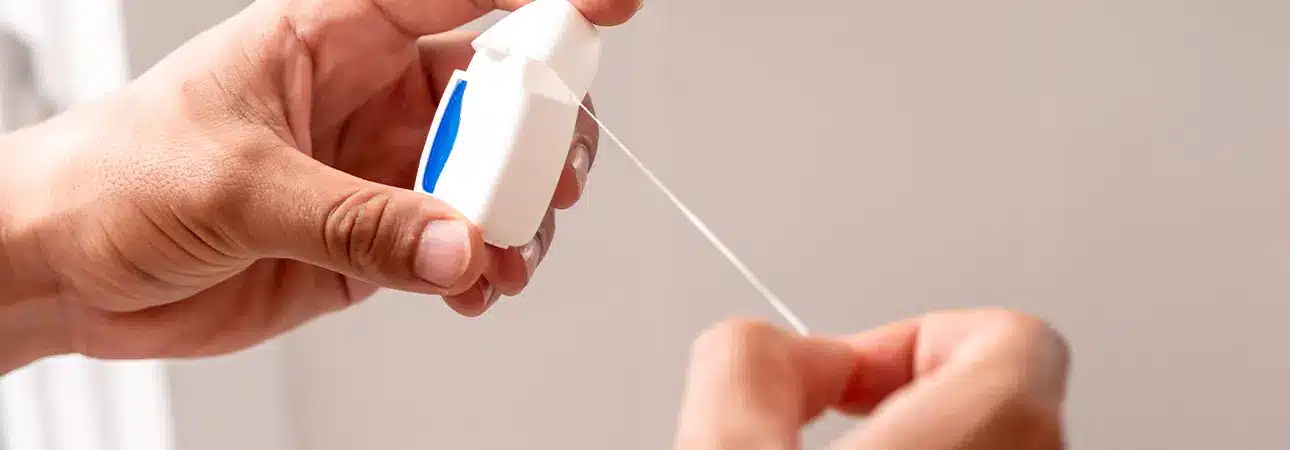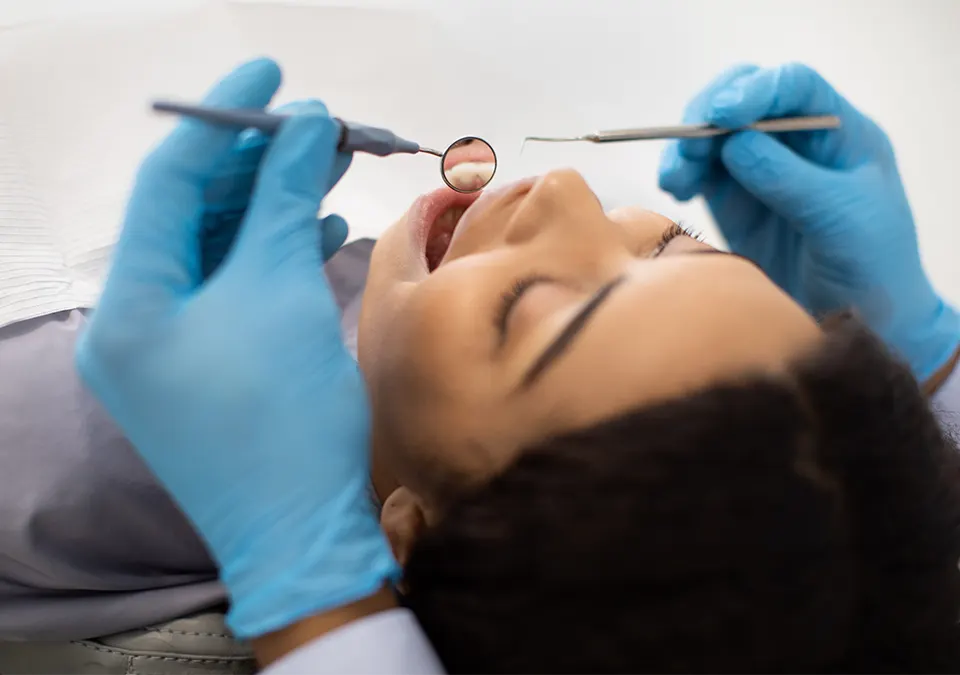Let’s be honest, most of us have skipped flossing more times than we’d like to admit. Maybe you were too tired at night, maybe you were in a rush, or maybe flossing just isn’t part of your routine yet. Whatever the reason, you’ve probably asked yourself at some point: Can the dentist really tell when I haven’t been flossing?
Short answer? Yep. They usually can. But don’t worry, we’re not here to judge! This blog will explain what dentists look for, why flossing is so important, and how adding it to your daily routine can protect your smile for the long run.
What Happens When You Skip Flossing?
Flossing might seem like a small step, but it plays a big role in your dental care. When you don’t floss, food particles, bacteria, and plaque build up between your teeth where your toothbrush can’t reach. Over time, this buildup can harden into tartar, which is much tougher to remove without professional cleaning.
Tartar and plaque do not just sit there. They can cause gum disease, bad breath, cavities, and even tooth loss if not treated. So while skipping flossing might not seem like a big deal today, your gums and teeth will eventually tell a different story.
How Do Dentists Know You’ve Been Skipping?
Dentists aren’t psychic, and they don’t have a magic tool to see if you’ve been flossing. However, they can often spot some key signs. If you haven’t been flossing regularly, here’s what they might notice during your checkup:
1. Red, Puffy, or Bleeding Gums
When you floss, you’re helping to remove plaque from the gum line. If you skip this step, your gums can become irritated and inflamed. Dentists often see bleeding gums as one of the first signs that flossing hasn’t been happening as often as it should.
2. Plaque and Tartar Between Teeth
Brushing your teeth is important, but it doesn’t reach those tight spaces between your teeth. That’s where flossing comes in. If your dentist sees plaque buildup or hardened tartar between your teeth, it’s a pretty clear sign that flossing isn’t part of your daily routine.
3. Bad Breath That Lingers
When food particles get stuck between your teeth and sit there for days, they start to break down and release odour. Regular brushing and flossing help to prevent bad breath by cleaning those hard-to-reach areas and removing bacteria.
4. Early Signs of Gum Disease
Skipping flossing can lead to the early stages of gum disease, called gingivitis. Dentists can spot the symptoms right away: tenderness, swelling, and sensitivity near the gum line.

Why Flossing Is More Important Than You Think
We get it, flossing can feel like a chore. But there are real benefits of flossing every single day.
Here’s what flossing actually does for your oral health:
- Removes plaque and food particles where your toothbrush can’t reach
- Prevents tooth decay by cleaning between the teeth
- Helps avoid gum disease by keeping your gums healthy
- Prevents bad breath by getting rid of bacteria buildup
- Keeps your smile fresh and reduces your risk of tooth loss over time
The goal of flossing is simple: to remove the bacteria that your toothbrush can’t get to. When you floss once a day, you’re giving your mouth a full clean, not just a surface-level scrub.
“But My Gums Bleed When I Floss!”
This is super common, especially if you’re just getting started. A little bleeding is usually a sign that your gums are inflamed from plaque buildup. The good news? If you stick with it, your gums will get healthier, and the bleeding will stop.
Try being gentle when you floss, don’t snap it between your teeth or dig into your gums. Curve the floss around each tooth in a “C” shape and slide it up and down. It might take a few days, but you’ll notice the difference.
Adding Flossing to Your Daily Routine (Without Dreading It)
If flossing feels like an annoying extra step, try making it a habit in a way that works for you:
- Keep floss handy: Put it beside your toothbrush or in your bathroom drawer so it’s visible.
- Use floss picks or water flossers. If you don’t like regular string floss, there are easy alternatives. They still get the job done.
- Pair it with a habit: Floss while watching TV, listening to music, or waiting for your shower to warm up.
The key is consistency. Like any habit, it gets easier the more you do it.
Final Thoughts
So, can dentists tell if you’ve been skipping flossing? Yes, but it’s not about catching you. It’s about helping you avoid future problems and protecting your long-term oral health.
At Dentistry Thirty Two, we’re here to make your dental care easy, supportive, and judgment-free. Book your appointment today and let’s keep your smile healthy.

